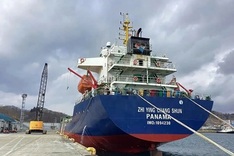"While the above timeframe for making the national and provincial planning is foreseeable, the draft decree fails to set out an alternative licencing mechanism during the transitional period"
 |
| Some foreign retailers have found joy in the local market. |
A retail business draft decree, being prepared by the Ministry of Industry and Trade (MoIT), is set to address the business community’s appetite for clearer guidelines for the sector.
While the draft decree is to provide detailed guidance for retail businesses, many issues stipulated in the document remain opaque.
VILAF–Hong Duc law firm executive partner Dang Duong Anh and associate Bui Van Quang take a closer look at the issue. Many retailers, eyeing up the local market, are having trouble sleeping at night.
One of the major concerns is the potential postponement, by the relevant authorities, of licencing the setting up of retail outlets as they wait for the introduction of national and provincial retail outlet planning as contemplated by Articles 24 to 26 of the draft decree.
The reason is the process for drafting and approving the planning will be time consuming, possibly up to two years for national planning and then additional one to two years for the local authority to work out and approve provincial planning.
During such a three to four year period, the postponement of issuing licences to businesses for setting up retail outlets cannot be avoided. While the above timeframe for making the national and provincial planning is foreseeable, the draft decree fails to set out an alternative licencing mechanism during the transitional period.
In addition, the provisions on the contents of national and provincial retail outlet planning under Article 25 are not practical, particularly when such planning is to be made by the ministries and provincial people’s committees which may not have enough resources to closely reflect the market and its demands.
Therefore, the conviction of such planning from the perspective of market analysis and determining the policy for retailing market will be questionable. In any circumstances, it would not be fair if enterprises have to suffer the consequences of the impractical and unfeasible planning.
To some extent, the planning activities for retail outlets as mentioned in the draft decree seem to follow the same approach for the planning of the other industries, such as power, automobile and mining. Such an approach is not suitable in this area.
Economic needs test
The current legislations have not provided any guidance for conducting economic needs tests (ENT) for establishing multiple retails outlets by local investors as well as for the second outlet of foreign-invested enterprises. The draft decree is a good attempt to remove such obstacles, but there are still several major issues still at hand.
Firstly, the consideration for licencing retail outlets based on the criteria such as population density as stipulated in Article 28.1(b) (areas with a lower population density will have fewer retail outlets) is not in line with the investment encouragement policy, particularly for the remote area with difficult economic conditions. Such policy is realised via preferential tax rates, land rental and other incentives from the government.
Secondly, granting licences for retail outlets based on the “market stability” (Article 28.1(b)) will also make the licencing procedures difficult because such criterion is entirely qualitative, rather than quantitative.
This will no doubt result in the subjective manner of the licencing authority in determining whether the market stability will be affected due to the establishment of new outlets. This is an obstacle, not only for the licencing authorities, but also for the enterprises in explaining and convincing them on the determination of “market stability”.
For determining the ENT, the draft decree introduces the establishment of the Economic Need Test Council. However, the organisation and power of this council and its working and decision-making mechanism are of big concern to enterprises.
On one hand, the government will face the need to expand the MoIT and people’s committees’ human resource structures if the council is a specialised agency. On the other hand, the question will be whether the council has enough specialised expertise and ensure working quality, if ENT is not established especially for that purpose.
In addition, Article 29.3 requires that the working result of the council must be reviewed and submitted to the MoIT for its approval by the relevant people’s committee. This will obviously make the council’s working procedure complicated and time consuming and will affect enterprises.
Article 30 even gives the council the right to approve the licencing of retail outlets (comprising markets, shopping malls, retail stores) having a certain floor area. Article 30 further provides that the construction authority will only grant construction licence for development of buildings with retail outlet purpose if the owners of such buildings have already obtained retail outlet licences.
This, on one hand, makes the licencing procedure more complicated with the council’s approval. On the other hand, it is unreasonable because the owners of retail outlet buildings may not necessarily carry out retail business, but leases the floors to the retailers.
Another issue is how the ENT requirement will apply in the foreign acquisition of shares in a local retail enterprise which already has a network of retail outlets nationwide.
Furthermore, this draft legislation has not clearly clarified whether an enterprise, whether with or without foreign-invested capital, is entitled to set up two retail outlets in a region/province or not, if it satisfies ENT requirements.
Finally, the draft decree has not dealt with the licencing issue for those enterprises trading different retailing goods, including those subject to certain restriction or separate licence granted by another state authority (e.g. whether an enterprise running a supermarket business is required to obtain separate licences for selling alcohol and tobacco in its supermarket or only needs to apply for a retail outlet licence).




















